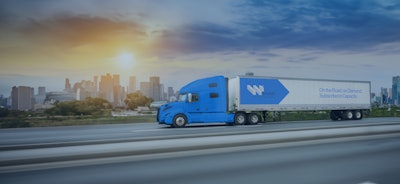
Cargo theft is surging, costing the industry up to $35 billion annually, and it’s only getting worse. With incidents projected to rise 22% this year, freight security has become mission-critical, especially during the peak shipping season. Shippers, carriers and logistics partners must reassess their security measures and work together to help combat this industry challenge.
Connectivity cannot be a buzzword—it must be the backbone of modern freight security.
As the narrative around cargo security evolves, the focus is shifting from traditional storage methods to embedding intelligence directly into trailers. While locks and digital capabilities are essential components, the future of cargo security lies in integrating smart technologies that anticipate and counteract sophisticated theft tactics. As freight theft becomes more organized and digital, the tools to address the problem must advance accordingly. This transformation requires more than technology vendors; it demands that manufacturers rethink their role in the supply chain, ensuring that every aspect of cargo security is interconnected and proactive.
Cracks in the ecosystem
Freight transportation is a transactional business driven by throughput, measured in miles, loads and transactions. This efficiency-first mindset leaves little room for error or fraud prevention, making the low-margin transportation industry and its myriad moving parts a target for cargo thieves.
Meanwhile, an increase in freight volume coupled with tighter appointment windows at distribution centers is forcing carriers to scramble to meet demands. As workloads increase, staffing hasn’t kept pace, leaving operations strained and freight more vulnerable to theft.
In certain situations, trucks sit idle because delivery appointments are scheduled days ahead of time. And drop trailers, which are meant to keep freight moving and make better use of drivers, are often left unattended in unmonitored yards, becoming easy targets.
The freight industry's fragmented nature also makes coordination difficult and creates opportunities for fraud. Shippers and receivers often work independently, with little communication and different systems for scheduling appointments and tracking loads.
Fortunately, the same connected technologies that can help transportation companies better manage the movement of cargo can also help them better secure that cargo.
Industry connectivity to alleviate cargo theft
As theft becomes more coordinated and high-tech, the industry’s response must also be smart, going beyond padlocks and paper trails. At a high level, this evolution hinges on industry connectivity. Not just GPS pings or telematics on trailers and truck bodies, but a comprehensive suite of trailer intelligence that ensures a verifiable chain of custody, real-time cargo visibility and controlled access.
Modern security starts with digital trust. Tools such as verified driver identities, validated carrier associations, geofencing and biometric authentication are quickly becoming foundational, not optional. These tools collectively establish an unbroken chain of custody, so only authorized individuals can engage with a trailer and its contents.
But the real breakthrough comes when these digital safeguards are embedded into the trailer itself. Rather than relying solely on external tools, today’s smart trailers integrate advanced systems that enhance visibility, control and responsiveness. These innovations not only deter theft but also capture detailed records of when, where and by whom the cargo was accessed. If something goes unplanned and your cargo needs to hold in a third-party location, digital tools can help monitor as well. That level of fidelity transforms trailers from passive transport vessels into active, intelligent guardians of cargo.
By embedding intelligence into trailers and aligning on access control standards, the industry can reduce friction, resolve theft faster and rebuild trust in the system.
Collaborative defense
During peak season, the stakes are higher. And as thieves are getting more sophisticated, so must industry. Shippers must be ready to invest in robust safeguards, carriers need the tools to protect their assets and reputations, and innovators must relentlessly push the boundaries of trailer security.
The smart trailer emerges not merely as a tool, but as a proactive partner for all parties in the fight against cargo theft, providing more intelligent and interconnected security measures. Ultimately, this smarter and more collaborative approach to cargo security will be essential to counter increasingly sophisticated criminal operations and restore confidence across the supply chain.



















